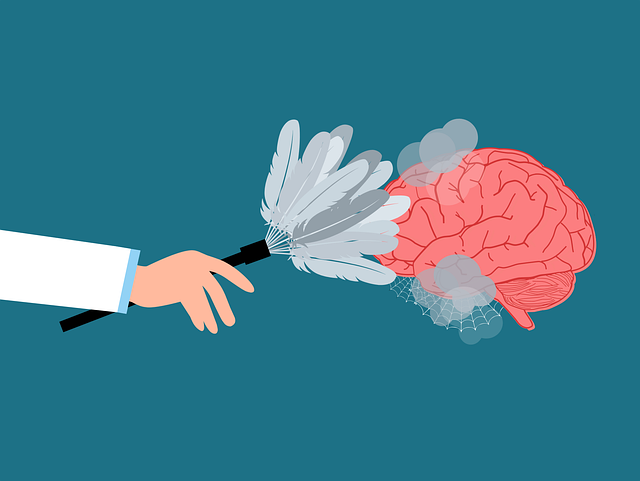Littleton Stress Management Therapy (LSMT) prioritizes cultural sensitivity in mental healthcare, recognizing that stress reduction and resilience building vary across cultures. Their innovative approach includes community outreach programs, comprehensive cultural competency training, active listening to clients' narratives, and tailoring resilience-building techniques to individual cultural contexts. By addressing language barriers and fostering open dialogue about mental health, LSMT creates an inclusive environment where diverse patients feel heard, respected, and supported on their journey to mental wellness.
In today’s diverse society, cultural sensitivity in mental healthcare is paramount. The ability to provide culturally competent care significantly impacts therapy outcomes, fostering trust and understanding among patients from various backgrounds. This article explores key aspects of cultural diversity in mental health, its influence on treatment success, and the challenges faced by practitioners. We present practical strategies, highlighting the successful implementation of approaches like the Littleton Stress Management Therapy, and share compelling case studies demonstrating the transformative power of culturally sensitive practices.
- Understanding Cultural Diversity in Mental Health Care
- The Impact of Cultural Sensitivity on Therapy Outcomes
- Challenges and Barriers to Providing Culturally Competent Care
- Strategies for Incorporating Cultural Sensitivity in Practice (Littleton Stress Management Therapy)
- Case Studies: Successful Implementation of Cultural Sensitive Approaches
Understanding Cultural Diversity in Mental Health Care

In the ever-evolving landscape of mental healthcare, understanding cultural diversity is paramount to providing effective and compassionate treatment. The community we serve is incredibly diverse, with individuals from various ethnic backgrounds, religions, and cultural practices. This diversity enriches our society but also presents unique challenges in mental health care. For instance, what works as a stress reduction method for one culture might not be suitable or even culturally offensive to another. At Littleton Stress Management Therapy, we recognize that resilience building isn’t a universal concept; it’s shaped by personal and collective experiences within specific cultural contexts.
Our approach incorporates community outreach program implementation to bridge the gap between mental healthcare services and diverse communities. By doing so, we aim to ensure that our practices are sensitive to the unique needs and beliefs of every individual who seeks support. Whether it’s adapting therapy techniques or offering resources in multiple languages, our goal is to foster an environment where everyone feels respected, heard, and understood on their journey towards mental wellness.
The Impact of Cultural Sensitivity on Therapy Outcomes

Cultural sensitivity is a cornerstone of effective therapy and significantly impacts treatment outcomes. In the diverse communities we serve, including Littleton Stress Management Therapy’s focus on mental health awareness, therapists who are attuned to cultural nuances can create safer, more inclusive environments for clients from various backgrounds. This, in turn, fosters stronger therapeutic alliances and enhances the quality of care.
When mental healthcare providers incorporate cultural sensitivity into their practice, they demonstrate an understanding of their clients’ unique perspectives shaped by their ethnic identities, beliefs, and experiences. Such awareness enables therapists to tailor interventions, ensuring that social skills training, for instance, respects and incorporates cultural values. This personalized approach not only increases client engagement but also improves overall therapeutic outcomes, promoting meaningful healing and growth.
Challenges and Barriers to Providing Culturally Competent Care

Providing culturally competent care is a multifaceted challenge in mental healthcare, especially in diverse communities like Littleton Stress Management Therapy’s service area. One of the primary barriers is the lack of cultural understanding among practitioners. Many mental health professionals may not have received adequate training to recognize and appreciate different cultural beliefs, values, and practices related to mental illness and healing. This gap can lead to miscommunication, misunderstandings, and even mistrust between therapists and clients from various ethnic, racial, or socioeconomic backgrounds.
Additionally, language barriers pose significant challenges, hindering effective therapy sessions. Accurate translation services are essential but may not always be readily available, impacting the quality of care. The implementation of a robust Community Outreach Program can help bridge these gaps by promoting cultural sensitivity and providing educational resources to both professionals and the community at large. Encouraging positive thinking and open dialogue about mental health within diverse communities can also foster an environment where individuals feel more comfortable seeking support and engaging in therapy.
Strategies for Incorporating Cultural Sensitivity in Practice (Littleton Stress Management Therapy)

Incorporating cultural sensitivity into mental healthcare practice, such as the Littleton Stress Management Therapy (LSMT) approach, involves several strategic steps. The first step is to ensure comprehensive cultural competency training for all staff members. This includes education on diverse cultural beliefs, practices, and communication styles, fostering an environment where every client feels heard and understood. LSMT encourages professionals to actively listen to clients’ narratives, recognizing the influence of their cultural backgrounds on their mental health experiences.
Additionally, resilience-building techniques tailored to individual cultural contexts can significantly enhance therapeutic outcomes. By integrating these strategies, mental healthcare providers in the LSMT framework can offer more personalized care. This involves a careful risk assessment for each client, considering potential cultural barriers and strengths. Such an approach not only improves treatment adherence but also promotes better overall mental health outcomes, reflecting the importance of cultural sensitivity in mental healthcare practice.
Case Studies: Successful Implementation of Cultural Sensitive Approaches

In various cultural contexts, mental healthcare practices have seen remarkable transformations through the successful implementation of culturally sensitive approaches. One notable example is the work done by Littleton Stress Management Therapy, which has pioneered methods that respect and incorporate clients’ cultural beliefs and traditions. This approach not only enhances therapy effectiveness but also fosters trust and openness among diverse patient populations. For instance, therapists trained in this model may adapt techniques like mindfulness practices to align with a client’s spiritual rituals, thereby making the therapeutic process more accessible and meaningful.
These culturally sensitive strategies have proven particularly impactful in addressing Mental Health Awareness, as they help to dispel stereotypes and promote understanding. Moreover, they play a crucial role in Mental Health Policy Analysis and Advocacy by highlighting the importance of inclusive practices. By tailoring therapy to reflect personal cultural identities, practitioners can facilitate better Emotional Regulation, leading to more positive outcomes for clients from various backgrounds.
Cultural sensitivity in mental healthcare is not just a preference, but an essential component for effective treatment. As highlighted by various case studies and successful implementations of approaches like Littleton Stress Management Therapy, understanding cultural diversity and incorporating culturally competent practices significantly enhance therapy outcomes. Overcoming challenges such as language barriers and unconscious biases requires ongoing education and adaptation within the field. By adopting strategies that emphasize cultural sensitivity, mental healthcare providers can create inclusive environments that foster trust, respect, and positive outcomes for diverse populations.










